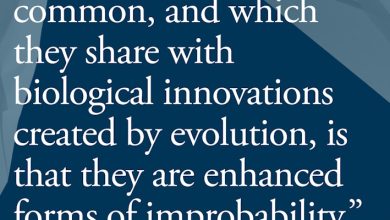How Blockchain Could Revolutionize Voting Systems

- Understanding the basics of blockchain technology
- The current challenges in traditional voting systems
- Benefits of implementing blockchain in voting systems
- Enhancing transparency and security in elections
- Case studies of successful blockchain voting projects
- The future of voting: How blockchain can reshape democracy
Understanding the basics of blockchain technology
Blockchain technology is a decentralized, distributed ledger system that allows for secure and transparent record-keeping of transactions. In simple terms, it is a chain of blocks containing data that is linked together using cryptographic principles. Each block contains a list of transactions, and once a block is added to the chain, it cannot be altered or deleted without consensus from the network.
One of the key features of blockchain technology is its transparency. All transactions recorded on the blockchain are visible to all participants in the network, ensuring that no single entity can manipulate the data. This transparency also helps to increase trust among users, as they can verify the integrity of the data themselves.
Another important aspect of blockchain technology is its security. Due to the decentralized nature of the network, it is extremely difficult for hackers to compromise the data stored on the blockchain. Each block is encrypted and linked to the previous block, making it virtually impossible to alter the data without being detected.
Blockchain technology also offers increased efficiency and cost savings compared to traditional centralized systems. By eliminating the need for intermediaries and automating processes through smart contracts, blockchain can streamline operations and reduce the risk of human error.
Overall, understanding the basics of blockchain technology is crucial for realizing its potential to revolutionize voting systems. By leveraging the security, transparency, and efficiency of blockchain, we can create a more trustworthy and accessible voting system that empowers citizens and strengthens democracy.
The current challenges in traditional voting systems
Traditional voting systems face numerous challenges in today’s fast-paced and technology-driven world. One of the main issues is the lack of transparency and security in the process. With paper-based systems, there is always a risk of tampering and fraud, leading to doubts about the accuracy of the results. Additionally, traditional voting methods are often slow and inefficient, causing long wait times and potentially discouraging voter turnout. Another challenge is the lack of accessibility for certain groups of people, such as those with disabilities or those living in remote areas. These issues highlight the need for a more modern and efficient solution to the voting process.
Benefits of implementing blockchain in voting systems
Implementing blockchain in voting systems has the potential to revolutionize the way we conduct elections. There are several benefits to using blockchain technology in the voting process:
- Transparency: Blockchain creates a transparent and tamper-proof ledger of all transactions, making it nearly impossible to manipulate or alter voting records.
- Security: The decentralized nature of blockchain ensures that voting data is secure and protected from hacking or external interference.
- Accessibility: Blockchain technology can make voting more accessible to a wider range of people, including those who are unable to physically attend polling stations.
- Efficiency: By streamlining the voting process and eliminating the need for manual counting and verification, blockchain can make elections more efficient and cost-effective.
- Trust: Blockchain instills trust in the voting system by providing a verifiable and auditable record of each vote cast, increasing voter confidence in the integrity of the electoral process.
Overall, implementing blockchain in voting systems has the potential to address many of the challenges and concerns associated with traditional voting methods, leading to more secure, transparent, and efficient elections.
Enhancing transparency and security in elections
Blockchain technology has the potential to enhance transparency and security in elections by providing a tamper-proof and decentralized system for recording votes. By utilizing blockchain, each vote can be securely recorded and verified, ensuring that the integrity of the election process is maintained.
One of the key benefits of using blockchain for voting systems is the ability to eliminate the possibility of fraud or manipulation. Since each vote is recorded on a public ledger that is transparent and immutable, it becomes virtually impossible for any unauthorized parties to alter the results without being detected.
Additionally, blockchain technology can also improve the accessibility of voting for individuals who may face barriers to participation. Through the use of digital identities and secure authentication methods, voters can cast their ballots from anywhere in the world, eliminating the need for physical polling stations and long lines.
Moreover, the use of blockchain in voting systems can help increase voter turnout by providing a more convenient and secure method for participating in elections. By leveraging the benefits of blockchain technology, governments and organizations can instill greater trust in the electoral process and ensure that every vote is counted accurately and fairly.
Case studies of successful blockchain voting projects
Blockchain technology has been successfully implemented in various voting projects around the world, showcasing its potential to revolutionize traditional voting systems. Here are some case studies of successful blockchain voting projects:
1. Estonia’s e-Residency Program: Estonia has been a pioneer in implementing blockchain technology in its voting systems. The country’s e-Residency program allows citizens and e-residents to vote securely using blockchain technology. This has increased voter turnout and transparency in the voting process.
2. Sierra Leone’s Presidential Elections: In 2018, Sierra Leone became the first country to use blockchain technology in a presidential election. The technology was used to verify the election results, ensuring transparency and reducing the risk of fraud. This project demonstrated the potential of blockchain in enhancing the integrity of electoral processes.
3. Follow My Vote’s Open Source Voting Platform: Follow My Vote is a US-based company that has developed an open-source blockchain-based voting platform. This platform allows for secure and transparent voting, with each vote recorded on the blockchain to ensure accuracy and integrity. The platform has been used in various elections and is gaining traction as a reliable voting solution.
4. Voatz Mobile Voting App: Voatz is a mobile voting app that utilizes blockchain technology to enable secure and convenient voting. The app has been used in pilot projects in several US states, allowing voters to cast their ballots remotely while ensuring the security and verifiability of the voting process. Voatz has received positive feedback for its user-friendly interface and robust security features.
These case studies highlight the successful implementation of blockchain technology in voting systems, showcasing its potential to revolutionize the way elections are conducted. With increased transparency, security, and accessibility, blockchain-based voting systems offer a promising solution to enhance trust in democratic processes.
The future of voting: How blockchain can reshape democracy
Blockchain technology has the potential to transform the way we vote and reshape our democratic processes. By using blockchain for voting systems, we can increase transparency, security, and accessibility in elections.
One of the key advantages of blockchain in voting is its ability to provide a secure and tamper-proof record of votes. Each vote is encrypted and stored on a decentralized ledger, making it nearly impossible for anyone to alter the results without detection.
Additionally, blockchain can enhance transparency in the voting process by allowing voters to verify that their votes were counted correctly. This can help increase trust in the electoral system and reduce concerns about fraud or manipulation.
Furthermore, blockchain technology can make voting more accessible to a wider range of people. With blockchain-based voting systems, voters can cast their ballots securely from anywhere in the world, without having to physically go to a polling station.
Overall, the future of voting looks promising with the potential of blockchain to revolutionize our democracy. By leveraging this technology, we can create a more secure, transparent, and inclusive electoral system for all citizens.



